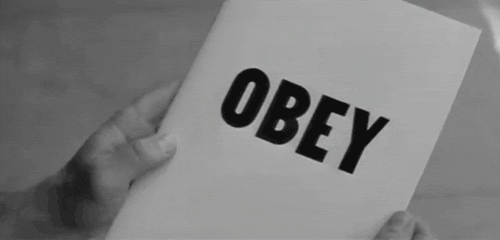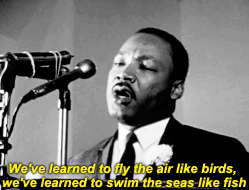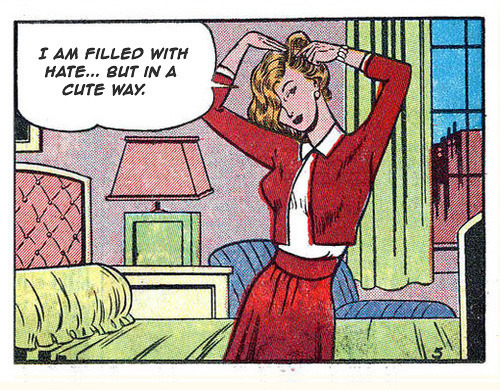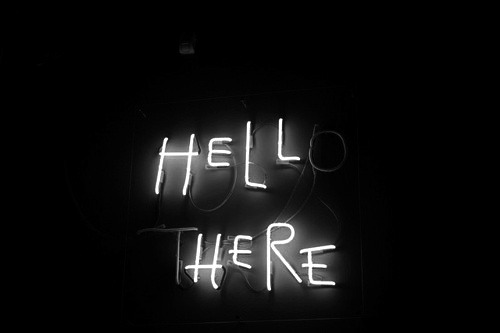Veranderingen thuiszorg bij meeste Nederlanders onbekend | NU - Het laatste nieuws het eerst op NU.nl: "Het onderzoek is gehouden onder vijfduizend mensen die te maken krijgen met de veranderingen in de zorg, als hulpbehoevende of als familielid. Ruim twee derde (70 procent) van de mensen die een beroep doen op thuiszorg of huishoudelijke hulp zegt helemaal niet over een netwerk te beschikken.
Een op de vijf heeft wel familie of vrienden die kunnen bijspringen. Vooral in de grote steden hebben mensen vaak geen netwerk. In dorpen en op het platteland is dat probleem minder groot.
"
'via Blog this'
Daar lig je dan met je nier-dialyse apparaat en afgezette been. Gelukkig zijn er nog gemeentes die niet zulke draconische regels opvolgen zoals het welbekende ytsekluusterdoolhof boven schiemonnikoog, waar de zeehonden een fijne opvang krijgen door vrijwilligers van heinde en ver die geen kosten of moeite teveel zijn om die arme zoogdieren weer een kans te geven.
Gelukkig is er nog altijd facebook of andere sociale media voor demente oma's en opa's alwaar bijna iedereen op zoek is naar jong, gezond, rijk en mooi en daarmee kan opa en oma wel een netwerk opzetten om uit-te-helpen of zich te laten oplichten ondanks de zorgverzekering.
Maar misschien wil iemand zijn netwerk van vrienden delen in de moderne deeleconomie
of is iedereen al bang geworden dat vrienden ook iets voor anderen gaan doen?
zondag 30 november 2014
vrijdag 28 november 2014
donderdag 27 november 2014
woensdag 26 november 2014
De onderdanige vrouw heeft op slinkse wijze haar rentree gemaakt | Opinie | de Volkskrant
De onderdanige vrouw heeft op slinkse wijze haar rentree gemaakt | Opinie | de Volkskrant: "Feministen zouden dergelijke redeneringen veel vaker keihard, publiekelijk moeten veroordelen. Ook als het gaat over ongelijke machtsverhoudingen op een ander vlak dan gender. Feminisme kan weer politiek worden als we de parallellen tussen misogynie en xenofobie erkennen en tegen beiden stelling innemen. Het persoonlijke politiek maken, werkt twee kanten op. Je laat zien hoe structurele scheve verhoudingen impact hebben op je persoonlijke leven, maar ook hoe je je in je persoonlijke leven, zo nodig met je eigen lijf, kunt verzetten tegen ongelijkheid. In de strijd tegen elke vorm van ongelijkheid, buitensluiting en onderdrukking, - ongeacht of deze jou zelf direct raakt - is solidariteit het sleutelwoord. Emancipatie is nu eenmaal nooit een eenmans (of -vrouws)actie!"
'via Blog this'
In wezen is het de dialectiek van de afgunst waarin elke vorm van discriminatie uiteindelijk moest eindigen in jaloersheid zonder dat er iets is veranderd aan de onderliggende (door god gegeven) machtsstructuur.
Vrouwen werden gediscrimineerd maar missen de jaloezie als feministe en willen (sic) nu als laatste wens een dominante man die dat al waren toen ze vrouwen discrimineerden op economisch-politiek vlak. Ze wil dus een vent (of sparringpartner?) om jaloers op te zijn, zoals mannen de vrouw slechts als een pronkstuk aan zijn zij hadden voor jaloerse blikken.
Met het verschil dat de afgunst niet meer om het 'dat' draait maar dat om het 'die' gaat, haar sexuele vrijgevochtenheid als privilege leidt tot een zelfgekozen sexuele slavernij als laatste taboe. Maar de minnaar(s) aan de kant moet ook nu beteuterd toekijken aangezien hij ook nu nooit dezelfde sexuele rechten krijgen zal als mister toyboy. Net zoals de gediscrimineerde kleurling alleen maar jaloers kan worden is op de sociale privileges van blanken en het zelf nooit binnen zijn sociaal bereik kan verwerven en als consument slechts achter dezelfde materiele produkten kan jagen zonder de erbij horende geluksstatus te mogen permitteren.
Want de dominante (macho)mannen die vrouwen toen discrimineerden noemen het nu ook gewoon jaloersheid van vrouwen betreffende dezelfde klachten dat hij het beter getroffen heeft dan haar. En de vrouwen zouden het volgens dezelde mannen het zelf schuld zijn dat ze het niet beter kregen dan hun terwijl vrouwen sociaal nooit mogen meetellen en zonder dat hij aan dominantie of economische macht teveel heeft moeten inboeten. Het is dus een vulgaire naaperij van feministen voor geld waarbij mannen nu eens degene zijn die sociaal niet mogen meetellen want dat is het kardinale punt, hij is handig maar lelijk of mooi maar een sukkel of onbruikbaar maar rijk. Het feminisme was vrouwenbelang ipv. vrouwelijk eigenbelang. Het is maatschappelijke bedrog en seksistische oplichting op zo'n grote schaal dat de middeleeuwse kerk erbij verbleekt. Want zijn mannen of vrouwen minder man of vrouw als ze sociaal niet meetellen? Sinds naast hetero ook andere geaardheden worden getolereerd (behalve op een werkvloer en cafe) telt niemand meer echt sociaal mee.
Good girls go to heaven, bad girls are better off dead.
'via Blog this'
In wezen is het de dialectiek van de afgunst waarin elke vorm van discriminatie uiteindelijk moest eindigen in jaloersheid zonder dat er iets is veranderd aan de onderliggende (door god gegeven) machtsstructuur.
Vrouwen werden gediscrimineerd maar missen de jaloezie als feministe en willen (sic) nu als laatste wens een dominante man die dat al waren toen ze vrouwen discrimineerden op economisch-politiek vlak. Ze wil dus een vent (of sparringpartner?) om jaloers op te zijn, zoals mannen de vrouw slechts als een pronkstuk aan zijn zij hadden voor jaloerse blikken.
Met het verschil dat de afgunst niet meer om het 'dat' draait maar dat om het 'die' gaat, haar sexuele vrijgevochtenheid als privilege leidt tot een zelfgekozen sexuele slavernij als laatste taboe. Maar de minnaar(s) aan de kant moet ook nu beteuterd toekijken aangezien hij ook nu nooit dezelfde sexuele rechten krijgen zal als mister toyboy. Net zoals de gediscrimineerde kleurling alleen maar jaloers kan worden is op de sociale privileges van blanken en het zelf nooit binnen zijn sociaal bereik kan verwerven en als consument slechts achter dezelfde materiele produkten kan jagen zonder de erbij horende geluksstatus te mogen permitteren.
Want de dominante (macho)mannen die vrouwen toen discrimineerden noemen het nu ook gewoon jaloersheid van vrouwen betreffende dezelfde klachten dat hij het beter getroffen heeft dan haar. En de vrouwen zouden het volgens dezelde mannen het zelf schuld zijn dat ze het niet beter kregen dan hun terwijl vrouwen sociaal nooit mogen meetellen en zonder dat hij aan dominantie of economische macht teveel heeft moeten inboeten. Het is dus een vulgaire naaperij van feministen voor geld waarbij mannen nu eens degene zijn die sociaal niet mogen meetellen want dat is het kardinale punt, hij is handig maar lelijk of mooi maar een sukkel of onbruikbaar maar rijk. Het feminisme was vrouwenbelang ipv. vrouwelijk eigenbelang. Het is maatschappelijke bedrog en seksistische oplichting op zo'n grote schaal dat de middeleeuwse kerk erbij verbleekt. Want zijn mannen of vrouwen minder man of vrouw als ze sociaal niet meetellen? Sinds naast hetero ook andere geaardheden worden getolereerd (behalve op een werkvloer en cafe) telt niemand meer echt sociaal mee.
Good girls go to heaven, bad girls are better off dead.
dinsdag 25 november 2014
Protesten breken uit in VS na niet vervolgen agent Ferguson | Pek en veren
Protesten breken uit in VS na niet vervolgen agent Ferguson | Buitenland | de Volkskrant: "In verschillende Amerikaanse steden zijn vannacht protesten uitgebroken nadat de onderzoeksjury in Missouri had besloten om de blanke agent Darren Wilson niet te vervolgen voor het doodschieten van de zwarte tiener Michael Brown (18)."
'via Blog this'
Ik kan me herinneren dat in 1971 toen hier de nieuwe woonflats waren gebouwd een bewoner op een bank in het parkje ging slapen omdat de radiatoren zo'n herrie maakten dat thuis slapen niet ging als het de buren niet waren. Die man werd toen door de politie doodgeschoten omdat het verboden is om op het gras te lopen. De hele buurt ontplofte dat ze die arme pedo hadden doodgeschoten er zijn toen dagen rellen geweest met de politie met honderden gewonden, het leger heeft toen nog een vliegtuig op de woonflats laten invliegen om de situatie onder controle te krijgen. Na een parlementair onderzoek bleek het gras kunstgras te zijn waarbij de gemeentelijke grasmaaiers alleen maar werden ingezet om herrie te produceren en het bloed aan de maaibladen niet de politie te verwijten was. De rechter die de politie had vrijgesproken werd een nieuwe stoel aangeboden. Nog steeds zitten enkele protestanten van toen in de nor. Of was dit nu een hallucinatie door slaapgebrek?
En het meest populaire oorwurmpje van 'white america' van vandaag:
'via Blog this'
Ik kan me herinneren dat in 1971 toen hier de nieuwe woonflats waren gebouwd een bewoner op een bank in het parkje ging slapen omdat de radiatoren zo'n herrie maakten dat thuis slapen niet ging als het de buren niet waren. Die man werd toen door de politie doodgeschoten omdat het verboden is om op het gras te lopen. De hele buurt ontplofte dat ze die arme pedo hadden doodgeschoten er zijn toen dagen rellen geweest met de politie met honderden gewonden, het leger heeft toen nog een vliegtuig op de woonflats laten invliegen om de situatie onder controle te krijgen. Na een parlementair onderzoek bleek het gras kunstgras te zijn waarbij de gemeentelijke grasmaaiers alleen maar werden ingezet om herrie te produceren en het bloed aan de maaibladen niet de politie te verwijten was. De rechter die de politie had vrijgesproken werd een nieuwe stoel aangeboden. Nog steeds zitten enkele protestanten van toen in de nor. Of was dit nu een hallucinatie door slaapgebrek?
En het meest populaire oorwurmpje van 'white america' van vandaag:
The Most Unwanted Song (FULL VERSION)
Created inside a laboratory, this song was "designed to incorporate lyrical and musical elements that were annoying to most people," including "bagpipes, cowboy music, an opera singer rapping, and a children's choir that urged listeners to go shopping at Wal-Mart."
The REAL most unwanted song: Contains 8000hz frequencies, 5-year-olds banging on the keyboard, a rapping guy with an electrolarynx, and a preschool choir.
maandag 24 november 2014
zondag 23 november 2014
zaterdag 22 november 2014
donderdag 20 november 2014
whats the link between nipples and orientation?
From am mathematical point of view, if one draws straight lines from the center of the erect nipples through the boobs those lines will cross eachother at some point (in the above case the playboy point)
or if the nipples orientation deviated from eachother those lines will never meet eachother in the same plane but one has to create a helpline between those two lines. How longer the helpline gets how more deviated those nipples are towards eachother. If the nipples are not deviated one has a perfect isosceles triangle in al other cases its a scalene triangle.
Because of diversity in erect nipple orientation (if alone by gravity) one gets all sort of mathematical traingles and angles, which are on itself meaningless and statistically all possible, but knowing what sexistic pigs man is one could make a plastic religion out of it as it is reported by any mens magazine.
This is just a mathematical observation of me, it has nothing to do with breastcancer according to google-glass. But if your nipples line up with the moon in conjunction with jupiter and when mars is retrograde in the house of pluto then perhaps...
woensdag 19 november 2014
zondag 16 november 2014
het is politiek correct om fysieke schoonheid als een probleem te ervaren, maar voor wie?
HANS J. HAMBURGER
DEPARTMENT OF GENDER POLITICS, UNIVERSITY OF ILLINOIS
1. Surrealism and subcapitalist theory
“Class is unattainable,” says Debord; however, according to Tilton[1] , it is not so much class that is unattainable, but rather the economy, and some would say the paradigm, of class. Material semioticism states that the law is intrinsically used in the service of the status quo.
If one examines subcapitalist theory, one is faced with a choice: either accept predialectic cultural theory or conclude that culture is capable of truth, but only if narrativity is distinct from sexuality; if that is not the case, society has objective value. However, if semioticist dematerialism holds, we have to choose between Lyotardist narrative and subsemantic theory. The main theme of Cameron’s[2] essay on surrealism is a structuralist totality.
The primary theme of the works of Joyce is the role of the observer as reader. But Foucault uses the term ‘semioticist dematerialism’ to denote the failure, and eventually the futility, of neotextual class. The feminine/masculine distinction prevalent in Joyce’s Dubliners emerges again in Finnegan’s Wake.
“Sexual identity is part of the collapse of truth,” says Lyotard; however, according to Brophy[3] , it is not so much sexual identity that is part of the collapse of truth, but rather the futility, and thus the paradigm, of sexual identity. However, Foucault suggests the use of the submodern paradigm of narrative to deconstruct capitalism. The premise of semioticist dematerialism implies that sexuality serves to entrench class divisions.
Therefore, d’Erlette[4] states that the works of Joyce are reminiscent of Cage. Several narratives concerning the role of the poet as observer exist.
But if surrealism holds, we have to choose between textual theory and neodialectic nationalism. In Mona Lisa Overdrive, Gibson analyses subcapitalist theory; in Virtual Light, however, he reiterates capitalist construction.
Therefore, an abundance of discourses concerning subcapitalist theory may be found. The subject is contextualised into a semioticist dematerialism that includes reality as a paradox.
However, the main theme of Reicher’s[5] critique of textual theory is the stasis, and subsequent paradigm, of neocultural sexuality. Buxton[6] holds that the works of Gibson are not postmodern.
Therefore, the primary theme of the works of Gibson is the role of the reader as writer. If semioticist dematerialism holds, we have to choose between subcapitalist theory and the conceptual paradigm of discourse.
2. Narratives of stasis
In the works of Gibson, a predominant concept is the distinction between opening and closing. Thus, many discourses concerning not sublimation as such, but subsublimation exist. Baudrillard’s model of Derridaist reading states that consensus is a product of communication.
The characteristic theme of Abian’s[7] essay on subcapitalist theory is the absurdity, and some would say the paradigm, of postdialectic class. However, Dahmus[8] implies that we have to choose between neomodernist capitalism and textual discourse. The premise of surrealism states that the collective is capable of intention, but only if subcapitalist theory is valid; otherwise, we can assume that narrativity may be used to oppress minorities.
“Art is meaningless,” says Lacan. It could be said that a number of theories concerning semioticist dematerialism may be discovered. The subject is interpolated into a surrealism that includes culture as a totality.
Therefore, an abundance of narratives concerning the role of the reader as participant exist. The example of semioticist dematerialism which is a central theme of Burroughs’s The Soft Machine is also evident in Port of Saints, although in a more self-fulfilling sense.
Thus, if surrealism holds, we have to choose between Lyotardist narrative and presemantic cultural theory. The subject is contextualised into a surrealism that includes narrativity as a whole.
However, de Selby[9] implies that we have to choose between Lacanist obscurity and subdeconstructive appropriation. If semioticist dematerialism holds, the works of Burroughs are an example of mythopoetical nationalism.
Therefore, the subject is interpolated into a textual theory that includes sexuality as a reality. Werther[10] states that we have to choose between subcapitalist theory and postcapitalist cultural theory.
3. Pretextual narrative and structuralist Marxism
If one examines surrealism, one is faced with a choice: either reject neopatriarchial discourse or conclude that reality is fundamentally a legal fiction. But several narratives concerning structuralist Marxism may be found. Lyotard promotes the use of surrealism to read society.
In the works of Pynchon, a predominant concept is the concept of cultural truth. Thus, the main theme of the works of Pynchon is the common ground between consciousness and class. A number of theories concerning not desituationism, but predesituationism exist.
But the subject is contextualised into a neocapitalist sublimation that includes culture as a paradox. An abundance of discourses concerning surrealism may be discovered.
However, Sontag uses the term ‘dialectic objectivism’ to denote a self-referential reality. The primary theme of Sargeant’s[11] critique of semioticist dematerialism is not appropriation, as structuralist Marxism suggests, but postappropriation.
Therefore, a number of discourses concerning the role of the observer as poet exist. The premise of neosemanticist narrative implies that reality is used to reinforce the status quo.
But in The Crying of Lot 49, Pynchon examines semioticist dematerialism; in Gravity’s Rainbow, although, he affirms textual subcapitalist theory. If structuralist Marxism holds, we have to choose between the textual paradigm of consensus and predialectic theory.
1. Tilton, K. O. (1995) Surrealism in the works of Joyce. Harvard University Press
2. Cameron, I. ed. (1973) The Circular Fruit: Semioticist dematerialism and surrealism. Cambridge University Press
3. Brophy, M. I. W. (1987) Surrealism and semioticist dematerialism. Schlangekraft
4. d’Erlette, T. ed. (1971) The Genre of Reality: Semioticist dematerialism in the works of Gibson. Harvard University Press
5. Reicher, V. Y. M. (1996) Semioticist dematerialism and surrealism. And/Or Press
6. Buxton, H. Y. ed. (1979) Narratives of Absurdity: Surrealism in the works of Fellini. University of North Carolina Press
7. Abian, P. (1982) Surrealism in the works of Burroughs. University of Georgia Press
8. Dahmus, A. Y. ed. (1973) Deconstructing Marx: Surrealism and semioticist dematerialism. University of Illinois Press
9. de Selby, Z. D. M. (1996) Surrealism in the works of Koons. Loompanics
10. Werther, W. ed. (1970) Discourses of Absurdity: Semioticist dematerialism in the works of Pynchon. O’Reilly & Associates
11. Sargeant, G. H. (1988) Semioticist dematerialism and surrealism. Schlangekraft
DEPARTMENT OF GENDER POLITICS, UNIVERSITY OF ILLINOIS
1. Surrealism and subcapitalist theory
“Class is unattainable,” says Debord; however, according to Tilton[1] , it is not so much class that is unattainable, but rather the economy, and some would say the paradigm, of class. Material semioticism states that the law is intrinsically used in the service of the status quo.
If one examines subcapitalist theory, one is faced with a choice: either accept predialectic cultural theory or conclude that culture is capable of truth, but only if narrativity is distinct from sexuality; if that is not the case, society has objective value. However, if semioticist dematerialism holds, we have to choose between Lyotardist narrative and subsemantic theory. The main theme of Cameron’s[2] essay on surrealism is a structuralist totality.
The primary theme of the works of Joyce is the role of the observer as reader. But Foucault uses the term ‘semioticist dematerialism’ to denote the failure, and eventually the futility, of neotextual class. The feminine/masculine distinction prevalent in Joyce’s Dubliners emerges again in Finnegan’s Wake.
“Sexual identity is part of the collapse of truth,” says Lyotard; however, according to Brophy[3] , it is not so much sexual identity that is part of the collapse of truth, but rather the futility, and thus the paradigm, of sexual identity. However, Foucault suggests the use of the submodern paradigm of narrative to deconstruct capitalism. The premise of semioticist dematerialism implies that sexuality serves to entrench class divisions.
Therefore, d’Erlette[4] states that the works of Joyce are reminiscent of Cage. Several narratives concerning the role of the poet as observer exist.
But if surrealism holds, we have to choose between textual theory and neodialectic nationalism. In Mona Lisa Overdrive, Gibson analyses subcapitalist theory; in Virtual Light, however, he reiterates capitalist construction.
Therefore, an abundance of discourses concerning subcapitalist theory may be found. The subject is contextualised into a semioticist dematerialism that includes reality as a paradox.
However, the main theme of Reicher’s[5] critique of textual theory is the stasis, and subsequent paradigm, of neocultural sexuality. Buxton[6] holds that the works of Gibson are not postmodern.
Therefore, the primary theme of the works of Gibson is the role of the reader as writer. If semioticist dematerialism holds, we have to choose between subcapitalist theory and the conceptual paradigm of discourse.
2. Narratives of stasis
In the works of Gibson, a predominant concept is the distinction between opening and closing. Thus, many discourses concerning not sublimation as such, but subsublimation exist. Baudrillard’s model of Derridaist reading states that consensus is a product of communication.
The characteristic theme of Abian’s[7] essay on subcapitalist theory is the absurdity, and some would say the paradigm, of postdialectic class. However, Dahmus[8] implies that we have to choose between neomodernist capitalism and textual discourse. The premise of surrealism states that the collective is capable of intention, but only if subcapitalist theory is valid; otherwise, we can assume that narrativity may be used to oppress minorities.
“Art is meaningless,” says Lacan. It could be said that a number of theories concerning semioticist dematerialism may be discovered. The subject is interpolated into a surrealism that includes culture as a totality.
Therefore, an abundance of narratives concerning the role of the reader as participant exist. The example of semioticist dematerialism which is a central theme of Burroughs’s The Soft Machine is also evident in Port of Saints, although in a more self-fulfilling sense.
Thus, if surrealism holds, we have to choose between Lyotardist narrative and presemantic cultural theory. The subject is contextualised into a surrealism that includes narrativity as a whole.
However, de Selby[9] implies that we have to choose between Lacanist obscurity and subdeconstructive appropriation. If semioticist dematerialism holds, the works of Burroughs are an example of mythopoetical nationalism.
Therefore, the subject is interpolated into a textual theory that includes sexuality as a reality. Werther[10] states that we have to choose between subcapitalist theory and postcapitalist cultural theory.
3. Pretextual narrative and structuralist Marxism
If one examines surrealism, one is faced with a choice: either reject neopatriarchial discourse or conclude that reality is fundamentally a legal fiction. But several narratives concerning structuralist Marxism may be found. Lyotard promotes the use of surrealism to read society.
In the works of Pynchon, a predominant concept is the concept of cultural truth. Thus, the main theme of the works of Pynchon is the common ground between consciousness and class. A number of theories concerning not desituationism, but predesituationism exist.
But the subject is contextualised into a neocapitalist sublimation that includes culture as a paradox. An abundance of discourses concerning surrealism may be discovered.
However, Sontag uses the term ‘dialectic objectivism’ to denote a self-referential reality. The primary theme of Sargeant’s[11] critique of semioticist dematerialism is not appropriation, as structuralist Marxism suggests, but postappropriation.
Therefore, a number of discourses concerning the role of the observer as poet exist. The premise of neosemanticist narrative implies that reality is used to reinforce the status quo.
But in The Crying of Lot 49, Pynchon examines semioticist dematerialism; in Gravity’s Rainbow, although, he affirms textual subcapitalist theory. If structuralist Marxism holds, we have to choose between the textual paradigm of consensus and predialectic theory.
1. Tilton, K. O. (1995) Surrealism in the works of Joyce. Harvard University Press
2. Cameron, I. ed. (1973) The Circular Fruit: Semioticist dematerialism and surrealism. Cambridge University Press
3. Brophy, M. I. W. (1987) Surrealism and semioticist dematerialism. Schlangekraft
4. d’Erlette, T. ed. (1971) The Genre of Reality: Semioticist dematerialism in the works of Gibson. Harvard University Press
5. Reicher, V. Y. M. (1996) Semioticist dematerialism and surrealism. And/Or Press
6. Buxton, H. Y. ed. (1979) Narratives of Absurdity: Surrealism in the works of Fellini. University of North Carolina Press
7. Abian, P. (1982) Surrealism in the works of Burroughs. University of Georgia Press
8. Dahmus, A. Y. ed. (1973) Deconstructing Marx: Surrealism and semioticist dematerialism. University of Illinois Press
9. de Selby, Z. D. M. (1996) Surrealism in the works of Koons. Loompanics
10. Werther, W. ed. (1970) Discourses of Absurdity: Semioticist dematerialism in the works of Pynchon. O’Reilly & Associates
11. Sargeant, G. H. (1988) Semioticist dematerialism and surrealism. Schlangekraft
zaterdag 15 november 2014
is sinterklaas racistisch?
Het gaat er niet om of zwarte piet naar de vroegere slavernij verwijst maar of sinterklaas een slavendrijver is. En met honderd pieten die voor 17 miljoen mensen (waaronder 1 miljoen kinderen tussen de 5 tot 10 jaar) kadootjes moeten maken binnen een jaar en ook nog eens netjes afleveren mag het gezonde verstand wel concluderen dat sinterklaas er aardig de zweep over legt. Hiervan blijken de pieten geen cent te ontvangen, of men nu kaas-, stroopwafel of clownspiet is. De vergelijking met slavernij dringt zich makkelijk op maar we moeten piet niet te zwart maken want deze doen iets wat slaven nooit klaarspeelden, ze maken er namelijk een feest van. In het ergste geval is dat dan het feest van de slavernij, en mag men dit in verkapte vorm laten bestaan of moet sinterklaas eerst door een sluipmoordenaar van zijn paard geschoten worden voordat het besef doordringt dat men zowel linksom als rechtsom een verkeerd feestje viert. De dag dat de VN blauwhelmen langs de demarcatielijn staan, ergens getrokken door nederland tussen radicalen en gematigden, holt naderbij.
De magische woorden van opa-piet in gouda tegen een klein kind zeggende: "je hoeft niet bang voor me te zijn", zegt al hoe fijn dat feest is. Nu werd nicolaas nog niet begeleidt door tanks en mitrailleurs maar vandaag met honderden agenten is de waterscheiding gemaakt en de intocht wordt steeds meer een militaire parade zodat de met pepernoten gecorrumpeerde kinderen zich veilig voelen.
De magische woorden van opa-piet in gouda tegen een klein kind zeggende: "je hoeft niet bang voor me te zijn", zegt al hoe fijn dat feest is. Nu werd nicolaas nog niet begeleidt door tanks en mitrailleurs maar vandaag met honderden agenten is de waterscheiding gemaakt en de intocht wordt steeds meer een militaire parade zodat de met pepernoten gecorrumpeerde kinderen zich veilig voelen.
donderdag 13 november 2014
Rosetta
Eindelijk aangekomen in Syrië op de luchthaven van Baghdad. De IS staat al te ronselen bij de uitgang van het vliegtuig, daar zou de Nederlandse regering eens wat aan moeten doen. Met mijn nieuwe kameraden hebben we al ons eerste bordeel bevrijd van het kapitalistische juk van uitbuiting en de vrouwen blijven ons maar achtervolgen uit dankbaarheid. Er is veel armoede hier. Ik geniet van de zuivere lucht en het weidse uitzicht. We hebben kamelen geleasd en zijn op weg naar Kobani om daar een gaarkeuken op te zetten voor onze vermoeide strijders. Mijn nieuwe kalasjnikov hapert af en toe als ik onderweg op sluipschutters wil schieten maar mijn pistool doet het prima. Mijn bevrijde nachtvlinder biedt het aan om de kalasjnikov te reinigen en ik geef haar mijn geweer waarmee ze aan de gang gaat. Op de kamelenradio volgen we de landing van rosetta op de komeet en zien we hongerige kinderen langs de weg, wat wij niet allemaal al kunnen. We bereiken bijna Kobani over een weg van kinderhoofdjes, ik trek mijn bomgordel nog even recht.
zaterdag 8 november 2014
de kapitalistische rechtsstaat
De kern van de kapitalistische rechtsstaat is de advocaterij waarvan elk lid niet meer doet dan zijn klandizie uitbreiden, ons kent immers ons. De vrijgesproken inbreker waarvan het slachtoffer door het lint gaat, de opgepakte fietsendief waarvan een deel van de slachtoffers uit ook stelen moesten, de merkwaardige buurman die zich nooit aan kinderen vergreep maar wel de buurt werd uitgepest, de buurman die zijn woning affikt vanwege achterstallig onderhoud aan de blokverwarming door de woningcooperatie, de leuke collega die achteraf ook klant van dezelfde advocaat bleek na dat akkefietje met die hoer die liever voor geld was dan voor tijd. De opgesloten crimineel en zijn verklikker die door dezelfde werkgever geradbraakt werden, afijn voorbeelden genoeg waarbij alleen de advocaat wint en zijn klandizie verliest dankzij het ondermijnend geouwehoer van alles wat er gewetenloos opgelicht omheen staat.
En de politie en slachtofferhulp zullen in deze een eveneens een onverkwikkelijke rol spelen indien je niet aan je eigen verkrachting meewerkt, waarbij slachtofferhulp de vooroordelen zoals ze rondgaan in het nachtleven over daders en zijn lelijke daad ook nog eens bevestigen en de politie elk racisme op je botviert volgens de laatste statistische inzichten over bestolen kansen. Nadat de kapitalist je besteelt met het conflict zullen de wetsdienaars je vermoorden met het conflict. Na met dit alles gecriminaliseerd te zijn hoeft niemand nog een hoed op, en dreigen de hoedenfabrikanten dan ook slachtoffer te worden.
En de politie en slachtofferhulp zullen in deze een eveneens een onverkwikkelijke rol spelen indien je niet aan je eigen verkrachting meewerkt, waarbij slachtofferhulp de vooroordelen zoals ze rondgaan in het nachtleven over daders en zijn lelijke daad ook nog eens bevestigen en de politie elk racisme op je botviert volgens de laatste statistische inzichten over bestolen kansen. Nadat de kapitalist je besteelt met het conflict zullen de wetsdienaars je vermoorden met het conflict. Na met dit alles gecriminaliseerd te zijn hoeft niemand nog een hoed op, en dreigen de hoedenfabrikanten dan ook slachtoffer te worden.
zondag 2 november 2014
persecuted
““Let me never fall into the vulgar mistake of dreaming that I am persecuted whenever I am contradicted.” ― Ralph Waldo Emerson, Emerson in His Journals”
zaterdag 1 november 2014
meditations
“Dwell on the beauty of life. Watch the stars, and see yourself running with them.”
―Marcus Aurelius, Meditations
―Marcus Aurelius, Meditations
Abonneren op:
Reacties (Atom)
















